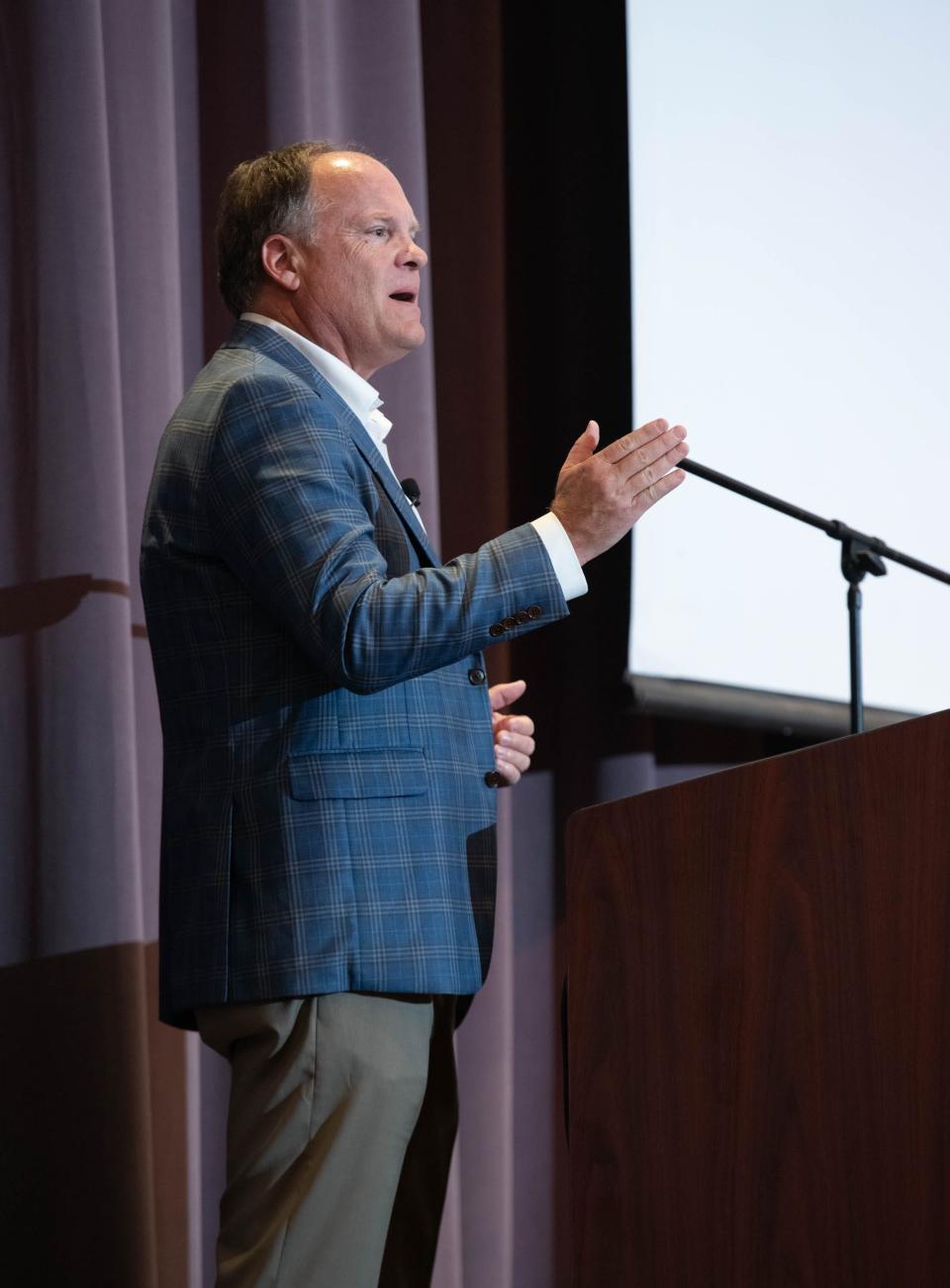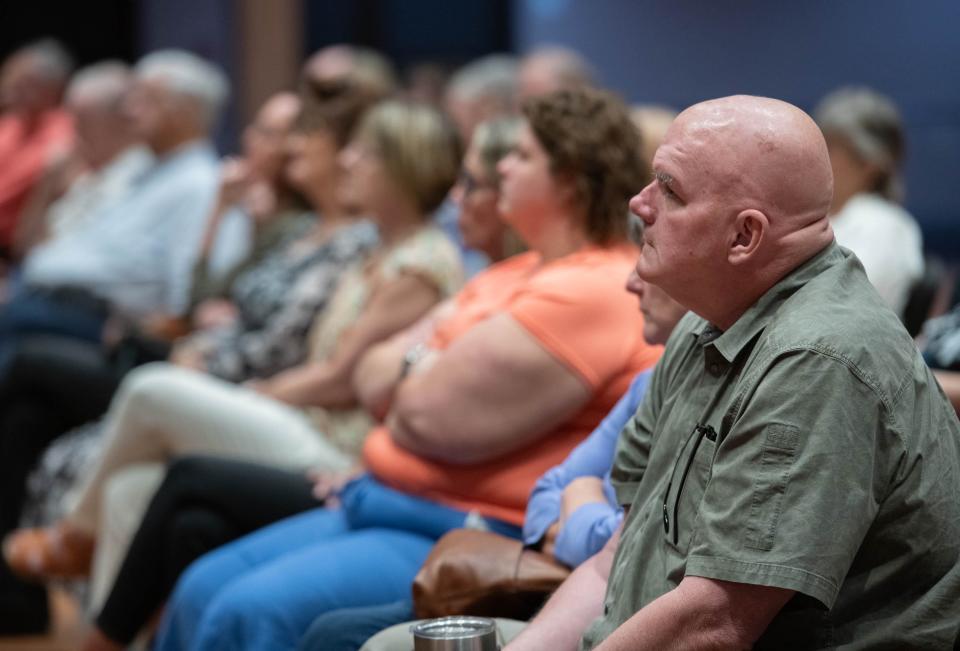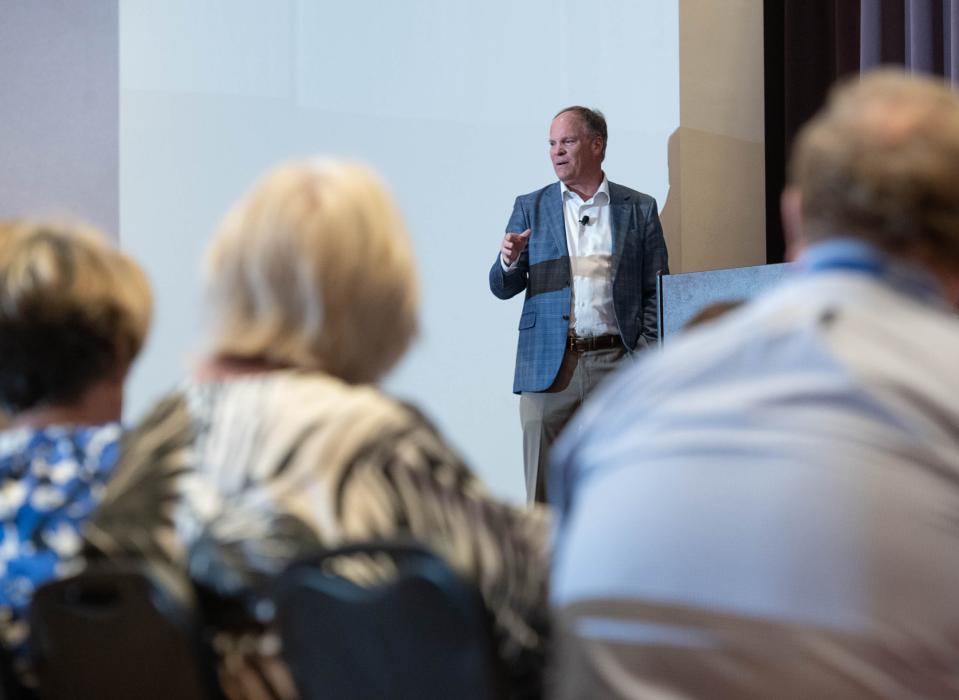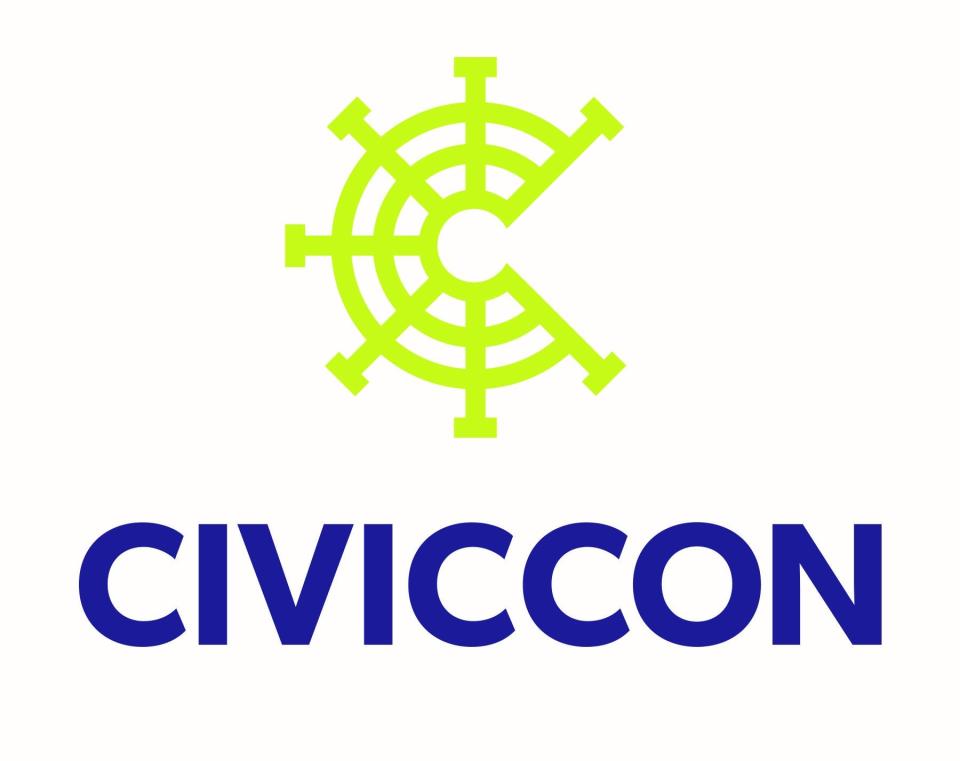How do we keep kids off drugs? Better conversations & more education, earlier | CivicCon
When the son of a family friend died of an overdose, David Magee was brought in to scare the young man's friends straight and convince them to stop using drugs.
It didn't work, of course.
"You know what his friends did the same night their friend died? In their grief, they bought more of the pills from the same place that their friend had bought a pill and died," Magee recalled. "Because they didn't know what to do but to feed their addiction and self medicate through it."
Still, speaking to a CivicCon crowd at the Brownsville Community Center on Tuesday night, Magee's message wasn't one of hopelessness or inevitability or fear. Quite the opposite, his message was that we can help youth overcome substance misuse and mental health struggles – and help them find and keep the joy in their lives.
More from Magee: CivicCon live: Pensacola kids are struggling with mental health, addiction. Learn how to help
Related: Our kids are suffering in silence amid worsening mental health crisis | CivicCon
The key, he said, is to change how we communicate with and educate our youth about drugs and mental health.
Magee created the The William Magee Institute for Student Wellbeing at The University of Mississippi after his son William died of an accidental drug overdose. He has traveled the country addressing students and parents about mental health and substance misuse challenges and solutions.
"As I got deeply into this work, I began to realize that about 40% of our students on college campuses are struggling with eating disorders or substances," Magee said. "And about 80% of that 40% has been deeply involved since early in high school and a lot of times middle school, just like my son William."
Magee said William had his first alcoholic drink in seventh grade and had begun using marijuana regularly around ninth grade. Magee's other son, Hudson, had his first alcoholic drink in fifth grade and was regularly using marijuana and alcohol by the 10th grade. His daughter, Mary Halley, developed an eating disorder in high school.

None of the scenarios are uncommon.
Citing data from the University of Mississippi School of Pharmacy, Magee reported:
44% of teens have at least one friend who abuses painkillers
25% of teens take prescription drugs not prescribed to them
40% of teens believe prescription drugs are safer than street drugs
60% of overdose deaths are caused by prescription painkillers
"When we talk about 15 Floridians dying a day from fentanyl overdose, it's shocking," Magee said. "But when I tell you that there's tens of thousands walking around at this very moment with fentanyl in their system that aren't dead, that's why it's a little hard to just shock everybody out of this."
Compounding the problem is the fact that American youth are in a mental health crisis.
According to federal data, the number of children and adolescents with anxiety and depression has risen nearly 30% in recent years. Between 2011 and 2021, the number of teens and young adults with depression more than doubled. According to the U.S. Centers for Disease Control and Prevention, in 2021, 42% of high school students reported experiencing persistent feelings of sadness, including 57% of girls and 69% of LGBQ+ students, and nearly one in three high school girls reported having seriously considered suicide.
"When we grew up, here's what they told us about substance misuse among young people: peer pressure. That's not it anymore. A lot of times young people are doing substances alone in their room and they're hiding and they're ashamed of it. And it's really not about peer pressure anymore. It's not. It's about self medication."

As an example, he said the majority of young people he interacts with say they use marijuana to help alleviate anxiety.
"I'm like, 'Have you seen the studies on that?' Because for 50% of the people – depending on their personality type and the strain they're using – that marijuana not only doesn't abate your anxiety, it greatly inflates it," Magee said. "We just have to teach that in school, we don't have to tell them don't do drugs. Why don't we show fifth-graders this? We just need to teach them the facts and ask them questions about what they want, 'Who do you want to be?' And then they begin to find their way."
How we can help youth battle addiction and mental health troubles
This month, Magee released his newest book, "Things Have Changed: What Every Parent (and Educator) Should Know About the Student Mental Health and Substance Misuse Crisis."
The book is intended to provide a clear road map for navigating the many struggles modern students face such as anxiety, depression, addiction, eating disorders, loneliness and the pressures of social media.
Magee said through The William Magee Institute for Student Wellbeing, "We are really beginning to dig in with some schools that want to be pilot schools to figure out how do we create the curriculum that we can teach in school so we can teach students not just about algebra, but about their mind, about how they may have strange feelings."
Magee expressed that by helping students understand that their feelings, their worries about the future and their bodies and their relationships are all normal things that everyone goes through, we can help them find healthier ways to manage those feelings.

"We must teach them, and the studies show that if we do you will not save everyone, but you can reach a staggering number and reduce the incidences of what will become later dangerous behavior," Magee said. "Because the studies show that if you merely delay substance use among young people, their odds of later becoming addicted to fentanyl or alcohol or any substance drops precipitously."
Magee recommends that parents and grandparents get in the habit of asking youth open-ended questions to help them identify their problems and be a part of the solutions.
In a list of concrete steps families can take to help tackle these issues, Magee also recommended sharing the following lessons with youth:
Value sleep like the air youth breathe. Magee noted youth are sleeping less, and many of the symptoms of sleep deprivation mirror attention-deficit/hyperactivity disorder.
Activities like walking and running send invigorating blood though the body.
Remember that you are not alone, mental health challenges are common.
Ask for help, as counseling earlier and more often makes a difference.
Identify your local drug dealer, who may often take the form of a classmate, teammate, frat brother or even a close friend or relative.
Be intentional about social media and do not let it own you.
Find ways to earn what you get, find ways to serve and believe in something greater than yourself.
Remember that less substance use is an investment in your "joy."
That last one is particularly important.
Magee noted when he visits schools he'll ask students questions like 'who likes football' or 'who eats pizza on Sunday night,' and he'll get somewhere between a third and three-quarters of the room to raise their hands.
But when he asks, "how many of you want joy?", 100% of the hands go up.
Scaring students straight doesn't work, but showing them there is hope does.
"They all want joy. All of us humans, actually, that's the thing that keeps us waking up and breathing," Magee said. "And sometimes when we feel uncomfortable or not sure why we're doing what, we keep moving (because) all humans want joy. Substances steal joy, untreated mental health steals joy. And when we take that message to students, we see an incredible response rate."
More information about Magee, his work and his books is available at daviddmagee.com.
Chime in: Pensacola has come far in 15 years, but work remains. Share your thoughts in annual survey

Magee's presentation was part of CivicCon, a partnership with the News Journal to help empower citizens to better their communities through smart planning and civic conversation.
The next CivicCon event will be a presentation on the results of the 2023 Quality of Life Survey Oct. 17 at The REX Theatre, 18. N. Palafox St.
More information about CivicCon, as well as stories and videos featuring previous speakers, is available at pnj.com/civiccon.
This article originally appeared on Pensacola News Journal: David Magee Pensacola CivicCon presentation talks youth drug treatment

